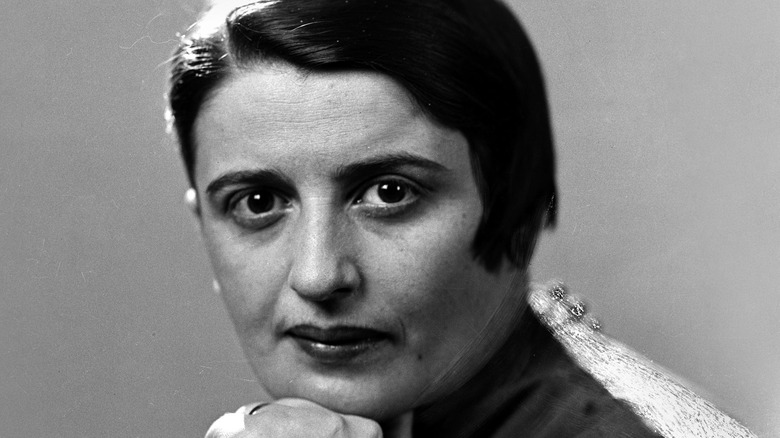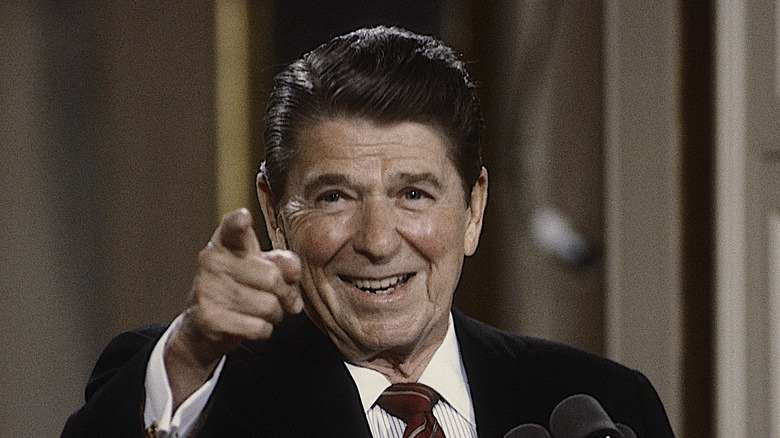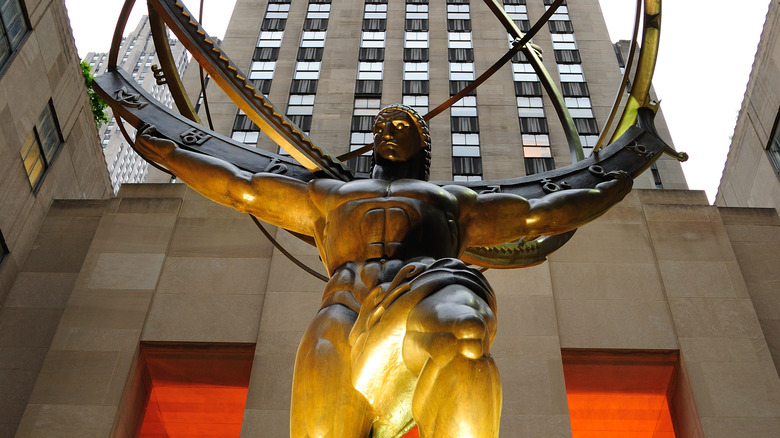Ayn Rand's Final Speech Denounced A Popular Politician And His Ideology
Perhaps no other philosopher in history might be as controversial as Ayn Rand. Throughout her career, Rand made many attacks on marginalized people, such as people with disabilities, and even went so far as to defend the genocide of Native American people once (via Salon).
To most people, Rand's most infamous contribution would be her philosophy of Objectivism. Objectivism, so named because Rand posited her philosophy as being based on objectivity and truth, championed the idea of individualism and full laissez-faire freedom (via Britannica). Essentially, it is capitalism on steroids. This philosophy has influenced numerous people, even some musicians.
Rand believed that the poor and needy should not leech from the wealthy or force the public to provide for them, but instead fend for themselves in a cold, cruel world. Rand herself received welfare checks and handouts from the government later in her life, as Snopes says. Besides blatant hypocrisy, Rand was quite good at something else: roasting politicians. Her target of choice was Ronald Reagan, whom she disagreed with on many things.
Ayn Rand disagreed with Reagan on religion
Ayn Rand was no fan of collectivism. As said by Britannica, collectivism is an umbrella term defining multiple ideologies centered around community and collective society. Philosophers such as Karl Marx were champions of collectivism. Objectivism argued that self-interest above all else was what was intrinsically best for society. She maintained that individualism was freedom in its purest form.
In 1981, Rand gave her final speech "Sanction of the Victims," and in it, she criticized President Ronald Reagan for his views on religion. Reagan believed that the moral center of the country was God and the family. His traditional views provoked rebuke from Rand, who — being concerned above all else with rationality — argued that religion had no place in society (via Open Culture). As NPR notes, Rand hated religion in all forms, and thought it was detrimental to the progress of society.
Rand thought that businessmen should be the ultimate inspiration
If Rand thought religion could not be a source of inspiration for people, then what did she think could be? That question is actually rather simple. Rand thought that businessmen should be the ultimate inspiration in life. As Open Culture mentions, Rand thought businessmen were the ultimate inspiration in the world. The likes of billionaires, multi-millionaires, and CEOs, were her supermen.
This was in direct conflict with what Reagan saw as the primary inspiration of American success. To Rand, the "inspirational element" in America was not in the religious family or the priest, but in the executive office, the financial districts of the world, and so on.
As said in her speech, Rand did agree with Reagan that America needed an inspirational source to drive its success but disagreed on where to find it. To her, forcing religion onto the majority was wrong. An atheist herself, she believed that people ought to have total freedom in what they practice.


